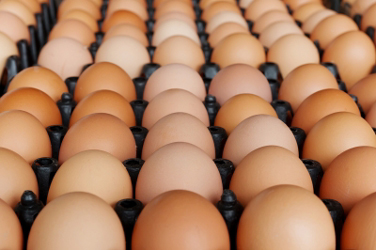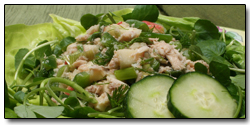What to Do with All These Eggs?

When you have chickens, you soon realize you can have eggs coming out the wazoo. Once you figure out you can’t give away any more eggs and your still sitting on an overwhelming amount, you need a way to use or preserve them. Preserving them is easier than you think, and they have been doing just that it in other countries for millennia. My mother has had this problem for a while until she learned this.
When a chicken lays an egg, it has a natural coating on it known as the bloom. This bloom is a layer of protection for the egg which keeps out oxygen as well as harmful bacteria and germs. It’s very, very common for those who raise chickens for their eggs to collect them and then keep them on the counter until they are ready to use—not put them in the refrigerator. And in fact, the majority of the grocery stores in the world don’t put their eggs in a refrigerated environment. When they’re ready to use the eggs, they either wash them, which eliminates the bloom and any bacteria or germs, or they crack them open—just as is—but take care not to do so over food that they are going to eat. Instead, they crack them into a separate dish or into a clean hand, but never over the food that they are mixing them. Also, in order to not spread the outside germs into the eggs, they never separate them with the egg shells; instead, they use their hands to separate the yolks from the whites.
While it’s absolutely normal for you and I to get our eggs from the refrigerated department of the grocery stores, it’s actually very unusual in the rest of the world; eggs, butter, and most cheese products are usually just sitting on the shelf, not in a refrigerated display. We tend to get spoiled in the modern world, my 6 year old thinks meat comes from a package not a cow. He will soon realize.
So what do we do with all those eggs?
Did you know you can preserve your eggs long-term without worrying about your family getting sick? There are several methods you can use. But my favorite one (because it’s the easiest) is using mineral oil.
All you have to do is warm a quarter cup of mineral oil (just about 10 seconds in the microwave will do). Set your eggs outside of the carton (because it will be hard to get them out one you start using the mineral oil). Dab a little bit of the warmed mineral oil on your hands and then pick up an egg. Run your oiled hands all over the eggs, making sure to cover it completely with the mineral oil. Don’t worry if you’re putting it on too thick or thin, just so long as every part of it is covered. When you’re finished with an egg, put it in the egg carton, small pointed side down. A quarter cup of mineral oil should easily do 4 to 6 dozen eggs.
Now, store your egg cartons in a cool, dry place. You want the temperature to be about 68 degrees for long-term storage otherwise storing them like this in your regular room temperature is just fine for a few weeks. If you have a second fridge then you could place in there and the eggs will keep better.
Don’t worry about an egg going bad and you not knowing it. Believe me; in this case the nose knows. Rotten eggs smell awful. They won’t be able to sneak up on you. The gas hydrogen sulfide develops as bacteria breaks down the proteins in the egg white, creating that nasty gas smell.
There’s another way to tell if your egg has gone bad. As oxygen gets into the egg, it creates an air bubble inside in place of moisture and carbon dioxide. This will cause the egg to float when placed in cold water (at least double the depth as the length of the egg). Anything other than a floating egg is fine to ingest.
Yes, you can do this method on grocery store eggs. The grocery store egg distributors make sure to wash off the bloom and then refrigerate them. Your mineral oil essentially reapplies the bloom. Of course I always look at the dates on the egg cartons and get them as “new” as possible. This preserving eggs method will allow your eggs to stay good for 9 months and sometimes as much as 12. Obviously, rotating through your eggs is standard, so my mother likes to number or alphabetize her eggs so that she can keep the egg cartons together in the batches that were purchased in. That way if there ever is a problem with a group of eggs, she knows where they came from. She has solved her problem with all those eggs, but she still gives away dozens of eggs a week to friends.
The Author:
I am a survivalist, who lives in Denver Colorado. I am dedicated to educating people about current events in the world concerning upcoming food crisis that will put the average citizen in danger. I believe in being prepared for natural or man-made disasters by stocking storage food an heirloom seeds as a way to feed my family if the system collapses and grocery stores close.
Along with a lifestyle that will lead to living off the grid, I want to educate people about how to not be dependant on government to survive. Emergency Homesteader









This is a good way to have eggs all winter…